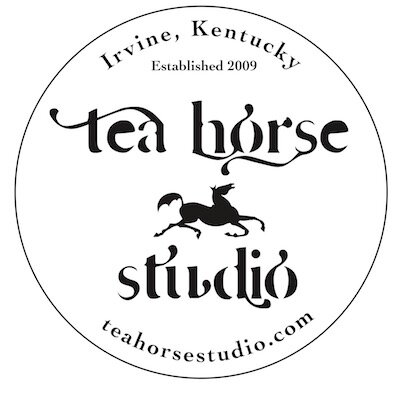Is anger evil?
Inner Reptile,
2014,
Stoneware clay, cone 6 oxidation, acrylic, wax, undeglaze, raw wool
9”w x 9”h x 2”d
I sent an internet parable that comes across my social media frequently to my niece the other day. It's often attributed to a “Cherokee lesson” but more than likely, that’s apocryphal. It's a story about two wolves, a good one and an evil one that fight inside a person. Which one wins that fight depends upon the one you feed (ergo, don't feed the evil wolf inside yourself). The evil wolf contained emotions like anger, envy, jealousy, self-pity, guilt, sorrow, regret, greed, arrogance, inferiority, lies, false pride, superiority and ego, &c. My niece asked, "Why are those emotions considered ‘evil?’" Good question. Anger is a primary indicator of mental pain. In my opinion, emotions themselves aren't evil. They're just emotions. They certainly can be uncomfortable emotions but I thinkt he way we react in the presence of those emotions is often what people mean when they call them “evil.”
The problem I have if I assign a value judgment to emotions, things that naturally arise from within, is that I can then assign a value judgement to the total self. So if my anger is evil, a natural thing that arises from within, does that make me inherently evil? I also have love and joy that naturally arise from within. Am I not therefore inherently good? I think the important distinction is how we express emotions. Is it constructive, resolution-based, or destructive and conflict-based? That's the "feeding," I think, that is referenced.
Often, the way people express their uncomfortable emotions isn't always clear to others. Within that murkiness, misunderstanding and conflict grow and evolve, malevolence and pain flourish, and nothing gets resolved. Most people, I believe, seek happiness and relief from their distress. But sometimes, there are others who seem to get energized off of the conflict and the fight. Rather than identify the anger, they choose to identify WITH it and cultivate it. They chase its energy, mistaking anger's powerful righteousness with a sense of happiness.
A major breakthrough I made with myself years ago was simply acknowledging what I felt instead of acting it out. Because MOTHER did not approve of me being angry or upset, because she didn't know how to teach me what to do when I was angry, how to understand my emotions, how to process my anger and resolve it, because she herself lacked those basic lessons when she was a child, my anger simply was not tolerated and would be punished if it arose, usually with banishment to my room with instructions I was not allowed to come out until I had a smile on my face and apologized. To her. For being angry. For years, decades, I misidentified emotions within my own self, acted out inappropriately, maintained immature ways of expressing how I felt because I was still suppressing on an ancient level, my anger and distress. Eventually, I kept picking at the problem and started experimenting with the simple statement out loud, "I am angry. This is why:" That simple communication was like the hiss of an air brake in my brain and it flipped a switch that allowed resolution help me find contentment and happiness, and not maintain conflict in my relationships as a way to “feel better.” For the most part I became unstuck. It was, after all, a conditioned response. Old learning like that requires diligence, commitment and practice in order to change. I have a wonderful partner in my practice as my husband also desired more resolution and less conflict in his life. We have practiced more listening and searching for solutions over the need to always be right, insult, injure and value-judge. A good start, the nice side effect is learning how to stop the self-judgment and self-loathing that has historically accompanied that kind of reactiveness to anger arising.
Is anger evil? Inherently, as a "thing," no. How we express anger, however, therein lies how we judge.

